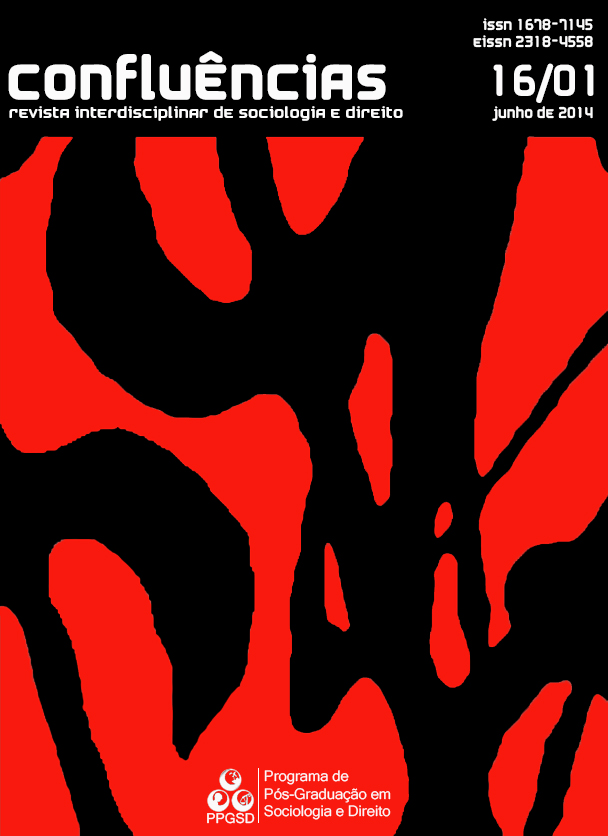"Co-management" revisited: sustainable use of natural resources and model of governance of Tamera/Portugal
DOI:
https://doi.org/10.22409/conflu16i1.p337Palavras-chave:
Co-management, sustainability, CommonsResumo
Political Economists’ understanding of Sustainable Development shapes perceptions of resource degradation problems and prescriptions recommended to solve them. In this context, Elinor Ostrom’s research is fundamental in the substitution of the “Tragedy of the Commons” metaphor to the more interesting “Drama of the Commons”. Of course we’ll have tragedies, in the open access regime situation. But, sometimes, we’ll have also reasons to laugh. Ostrom stresses that a commons can be well governed and that most people, when presented with a resource problem, can cooperate and act for the common good. “Co-management” and self–regulation are the keys for sustainable resource management.
This conclusion may be fundamental when trying to investigate the relation between social responsibility and environmental sustainability.
Relating social responsibility (as a special ethical positioning facing the community, including a set of values and a strategy of social inclusion and development, as well as the promotion of collective and individual citizenship) with the experiences of co-management (whose studies gave E. Ostrom the Nobel prize), is an interesting research field. A particular example of this kind of preoccupations is the land use case. Taking several cases, many researchers have been arguing that community–based management should prevent the commons tragedies and that cooperative management often results in sustainable use of agricultural land. The analysis identifies strong leadership and robust social capital as important factors of success.
This paper introduces a particular case in the south of Portugal (TAMERA/Odemira), describe this experience of co-management and evaluate its results in terms of the relation Social Responsibility / Sustainable Development.
Downloads
Downloads
Publicado
Edição
Seção
Licença
Os autores mantêm os direitos autorais e concedem à revista o direito de primeira publicação, com o trabalho simultaneamente licenciado sob a Licença Creative Commons Attribution que permite o compartilhamento do trabalho com reconhecimento da autoria e publicação inicial nesta revista. Têm autorização para assumir contratos adicionais separadamente, para distribuição não-exclusiva da versão do trabalho publicada nesta revista (ex.: publicar em repositório institucional ou como capítulo de livro), com reconhecimento de autoria e publicação inicial nesta revista. Possuem permissão e são estimulados a publicar e distribuir seu trabalho online (ex.: em repositórios institucionais ou na sua página pessoal) a qualquer ponto antes ou durante o processo editorial, já que isso pode gerar alterações produtivas, bem como aumentar o impacto e a citação do trabalho publicado.







